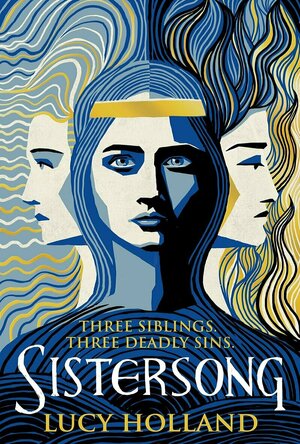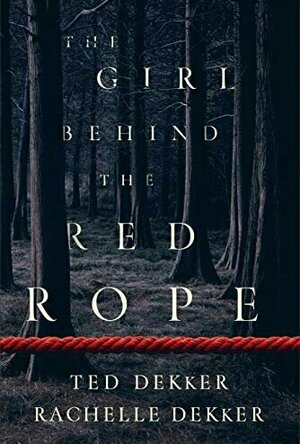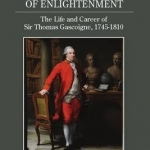
Catholicism, Identity and Politics in the Age of - The Life and Career of Sir Thomas Gascoigne, 1745-1810
Book
This book explores the changing aspirations, attitudes and identities of English Catholics in the...
ClareR (6067 KP) rated Sistersong in Books
Aug 9, 2021
Cadors three daughters do still have that magical connection. The story is told from their perspective. The eldest, Riva, has been badly burnt in the past, and whilst she can heal others, she can’t heal herself.
Keyne, although born female, has never felt female and longs to be recognised as a man.
Sinne, the youngest, lives for love and flirtation.
When an emissary from another kingdom arrives, he drives a wedge between Riva and Sinne. They see their chance at escape from the Hold. Whilst this is happening, Keyne trains with Myrdin, in the hope that he’ll be recognised as next in line to the throne.
I loved this book - it has all of my favourite elements in a story: mythology, history, magic, lies, deceit, the love of family and siblings, along with the themes of duty and identity. It really packs a punch. The world building is fantastic, and thoroughly immersive. Highly recommended!
Arcadian Visions: Pastoral Influences on Poetry, Painting and the Design of Landscape
Book
This book is about Arcadia and the pastoral tradition; what it has meant for successive generations...

Stranger Magic
Book
Our foremost theorist of myth, fairytales, and folktales explores the magical realm of the...
Cody Cook (8 KP) rated Writings Of Thomas Paine Volume 4 (1794 1796); The Age Of Reason in Books
Jun 29, 2018
The book seems to have had three major objectives: the support of deism, the ridicule of what Paine found loathsome in Christian theology, and the demonstration of how poor an example the Bible is as a reflection of God.
In a sense, Paine's arguments against Christian theology and scripture were meant to prop up his deistic philosophy. Paine hoped that in demonizing Christianity while giving evidences for God, he would somehow have made the case for deism. But this is not so. If Christianity is false, but God exists nonetheless, we are not left only with deism. There are an infinite number of possibilities for us to examine regarding the nature of God, and far too many left over once we have eliminated the obviously false ones. In favor of deism Paine has only one argument—his dislike of supernatural revelation, which is to say that deism appeals to his culturally derived preferences. In any case, Paine's thinking on the matter seemed to be thus: if supernatural revelation could be shown to be inadequate and the development of complex theology shown to be an error, one could still salvage a belief in God as Creator, but not as an interloper in human affairs who required mediators.
That being said, in his support of deism, Paine makes some arguments to demonstrate the reasonableness in belief in, if not the logical necessity of the existence of, God which could be equally used by Christians.
For instance, just as the apostle Paul argued in his epistle to the Romans that, "what can be known about God is plain to [even pagans], because God has shown it to them. For his invisible attributes, namely, his eternal power and divine nature, have been clearly perceived, ever since the creation of the world, in the things that have been made" (Romans 1:19-20, ESV), so also Paine can say that, "the Creation speaketh an universal language [which points to the existence of God], independently of human speech or human language, multiplied and various as they be."
The key point on which Paine differs from Paul on this issue is in his optimism about man's ability to reason to God without His assisting from the outside. Whereas Paul sees the plainness of God from natural revelation as an argument against the inherent goodness of a species which can read the record of nature and nevertheless rejects its Source's obvious existence, Paine thinks that nature and reason can and do lead us directly to the knowledge of God's existence apart from any gracious overtures or direct revelation.
On the witness of nature, Paine claims, and is quite correct, that, "THE WORD OF GOD IS THE CREATION WE BEHOLD: And it is in this word, which no human invention can counterfeit or alter, that God speaketh universally to man." What is not plainly clear, however, is that man is free enough from the noetic effects of sin to reach such an obvious conclusion on his own. Indeed, the attempts of mankind to create a religion which represents the truth have invariably landed them at paganism. By paganism I mean a system of belief based, as Yehezkel Kaufmann and John N. Oswalt have shown, on continuity.iv In polytheism, even the supernatural is not really supernatural, but is perhaps in some way above humans while not being altogether distinct from us. What happens to the gods is merely what happens to human beings and the natural world writ large, which is why the gods are, like us, victims of fate, and why pagan fertility rituals have attempted to influence nature by influencing the gods which represent it in accordance with the deeper magic of the eternal universe we all inhabit.
When mankind has looked at nature without the benefit of supernatural revelation, he has not been consciously aware of a Being outside of nature which is necessarily responsible for it. His reasoning to metaphysics is based entirely on his own naturalistic categories derived from his own experience. According to Moses, it took God revealing Himself to the Hebrews for anyone to understand what Paine thinks anyone can plainly see.
The goal of deism is to hold onto what the western mind, which values extreme independence of thought, views as attractive in theism while casting aside what it finds distasteful. But as C.S. Lewis remarked, Aslan is not a tame lion. If a sovereign God exists, He cannot be limited by your desires of what you'd like Him to be. For this reason, the deism of men like Paine served as a cultural stepping stone toward the atheism of later intellectuals.
For Paine, as for other deists and atheists like him, it is not that Christianity has been subjected to reason and found wanting, but that it has been subjected to his own private and culturally-determined tastes and preferences and has failed to satisfy. This is the flipside of the anti-religious claim that those who believe in a given religion only do so because of their cultural conditioning: the anti-religionist is also conditioned in a similar way. Of course, how one comes to believe a certain thing has no bearing on whether that thing is true in itself, and this is true whether Christianity, atheism, or any other view is correct. But it must be stated that the deist or atheist is not immune from the epistemic difficulties which he so condescendingly heaps on theists.
One of the befuddling ironies of Paine's work is that around the time he was writing about the revealed religions as, “no other than human inventions set up to terrify and enslave mankind, and monopolize power and profit," the French were turning churches into “temples of reason” and murdering thousands at the guillotine (an instrument of execution now most strongly identified with France's godless reign of terror). Paine, who nearly lost his own life during the French Revolution, saw the danger of this atheism and hoped to stay its progress, despite the risk to his own life in attempting to do so.
What is odd is that Paine managed to blame this violent atheism upon the Christian faith! Obfuscated Paine:
"The Idea, always dangerous to Society as it is derogatory to the Almighty, — that priests could forgive sins, — though it seemed to exist no longer, had blunted the feelings of humanity, and callously prepared men for the commission of all crimes. The intolerant spirit of church persecution had transferred itself into politics; the tribunals, stiled Revolutionary, supplied the place of an Inquisition; and the Guillotine of the Stake. I saw many of my most intimate friends destroyed; others daily carried to prison; and I had reason to believe, and had also intimations given me, that the same danger was approaching myself."
That Robespierre's deism finally managed to supplant the revolutionary state's atheism and that peace, love, and understanding did not then spread throughout the land undermines Paine's claims. Paine felt that the revolution in politics, especially as represented in America, would necessarily lead to a revolution in religion, and that this religious revolution would result in wide acceptance of deism. The common link between these two revolutions was the idea that the individual man was sovereign and could determine for himself what was right and wrong based on his autonomous reason. What Paine was too myopic to see was that in France's violence and atheism was found the logical consequence of his individualistic philosophy. In summary, it is not Christianity which is dangerous, but the spirit of autonomy which leads inevitably into authoritarianism by way of human desire.
As should be clear by now, Paine failed to understand that human beings have a strong tendency to set impartial reason aside and to simply evaluate reality based on their desires and psychological states. This is no more obvious than in his own ideas as expressed in The Age of Reason. Like Paine's tendency to designate every book in the Old Testament which he likes as having been written originally by a gentile and translated into Hebrew, so many of his criticisms of Christian theology are far more a reflection upon himself than of revealed Christianity. One has only to look at Paine's description of Jesus Christ as a “virtuous reformer and revolutionist” to marvel that Paine was so poor at introspection so as to not understand that he was describing himself.
There is much more that could be said about this work, but in the interest of being somewhat concise, I'll end my comments here. If you found this analysis to be useful, be sure to check out my profile and look for my work discussing Paine and other anti-Christian writers coming soon.
Heather Cranmer (2721 KP) rated The Girl Behind the Red Rope in Books
Oct 15, 2019
As I stated previously, the synopsis of The Girl Behind the Red Rope definitely left me intrigued. Grace has seen what not following her religious community's strict rules can bring. However, when a young boy makes his way into their tight community, Grace begins to question everything she's been taught which puts her in extreme danger.
Everything flowed so smoothly including the pacing which never let me down. I was constantly finding excuses to finish reading The Girl Behind the Red Rope since I had to know what would happen next. While I felt the plot was predictable more often than not, I still really enjoyed this book. I felt like their were no cliff hangers, and all of my questions were answered by the ending.
As for the Christian aspect of this book, it didn't read like a Christian novel most of the way through. I'd say it was probably around the last quarter of the book where Christianity came into play. I didn't think it was overly preachy although I think that those who aren't very spiritual or who are agnostic or are atheist may feel it's a tad on the preachy side. I would say The Girl Behind the Red Rope is more anti-religion and pro-Christianity overall. That's what I took from it anyway. It does have a really good message regarding love though which I found really nice to read about.
I very much enjoyed how every character in The Girl Behind the Red Rope was written. I felt like I was actually part of their world, stuck in the same community with them. Grace is a very likable character. I loved how the characters made her feel like a real person by giving her the conflicting thoughts as to who was to be believed throughout the novel. I enjoyed Grace's thought process about everything throughout the book. While I knew who and what she should choose, it was easy to see why she was so torn. Bobbie and Sylous were both very intriguing characters. I never trusted Sylous from the start, but Bobbie was one character that I wasn't sure if she actually had Grace's best interest at heart or if she had ulterior motives. There were times I despised Rose, not because she wasn't written poorly, in fact, she was written perfectly, but because of how much trust she put into Sylous and how overly judgmental she could be sometimes. I know that Rose was only going on what she thought to be true, but there were just so many times I wanted Rose to disappear! My favorite character was Eli. I loved his innocence and how happy go lucky he was.
Trigger warnings for The Girl Behind the Red Rope include cult mentality, violence, and murder.
All in all, The Girl Behind the Red Rope is such a fantastic read with such a powerful message. The characters are written beautifully, and the plot is done superbly. I would definitely recommend The Girl Behind the Red Rope by Ted Dekker and Rachelle Dekker to those aged 15+. Christians will definitely enjoy this book, but I think even non-Christians will probably love it as well.

The History of the Jews
Book
The History Of The Jews: From The Earliest Period Down To Modern Times, In Three Volumes. (Vol. 3)...
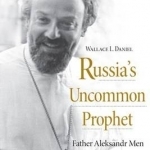
Russia's Uncommon Prophet: Father Aleksandr Men and His Times
Book
This lucidly written biography of Aleksandr Men examines the familial and social context from which...
Believing in Order to See: On the Rationality of Revelation and the Irrationality of Some Believers
Jean-Luc Marion and Christina M. Gschwandtner
Book
Faith and reason, especially in Roman Catholic thought, are less contradictory today than ever. But...
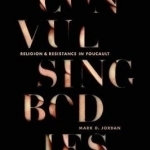
Convulsing Bodies: Religion and Resistance in Foucault
Book
By using religion to get at the core concepts of Michel Foucault's thinking, this book offers a...
